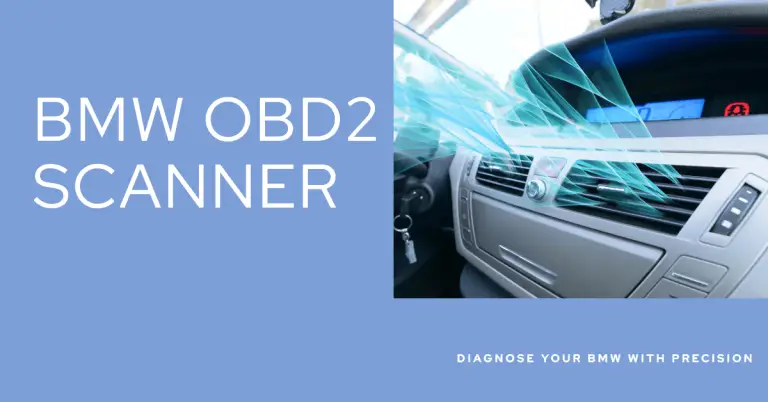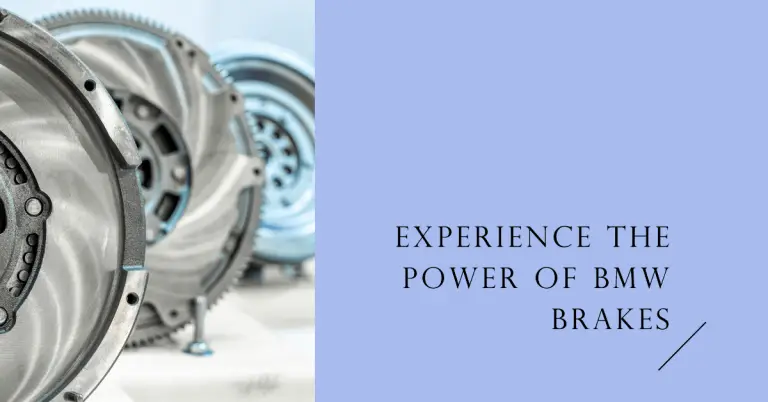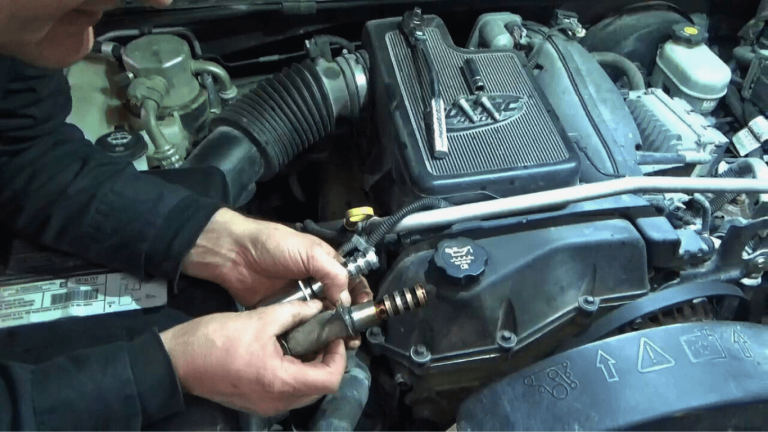Drivetrain Malfunction BMW: Causes and Fixes
Driving your BMW down the road when suddenly an ominous drivetrain malfunction warning appears on your instrument cluster. What does this mean? Is it safe to keep driving? What repairs might be needed and how much will they cost? This frustrating alert is bound to raise some concerns.
Fortunately, in most cases a BMW drivetrain malfunction indicator is easily diagnosed and repaired with the right troubleshooting process and maintenance. Read on to learn what triggers this warning light, what systems could be affected, top repair costs, and tips to prevent future BMW drivetrain problems.
What Does “Drivetrain Malfunction” Mean in a BMW?
First, let’s demystify what the drivetrain refers to in your BMW. The drivetrain consists of all the components that transfer power from the engine to the drive wheels, including:
- Transmission – transfers power from engine to driveshaft through gears
- Driveshaft – connects transmission to differential
- Differential – splits torque between wheels while allowing them to spin at different speeds
- Axles – transfer torque from differential to drive wheels
So when your BMW displays a drivetrain malfunction warning, it indicates an issue with one or more of these key components that enable your car to move.
Without urgent attention, drivetrain problems can lead to breakdowns, difficult shifting, loss of power, and even transmission failure in severe cases. Getting the right repairs quickly helps avoid more expensive damage down the road.
What Triggers the Drivetrain Malfunction Light in a BMW?
Many conditions can activate the dreaded drivetrain malfunction indicator in your BMW:
Faulty Transmission Sensors
Several key sensors monitor pressures, temperatures, and positions within the transmission. If one of these sensors fails or sends incorrect data to the transmission control module, it may trigger the drivetrain malfunction light. Some possibilities include:
- Transmission fluid pressure sensors – monitor clutch pressures needed for smooth gear changes. Faulty sensors can cause shifting delays and slippage.
- Transmission temperature sensors – help regulate operating temps. Bad sensors can lead to overheating.
- Transmission speed sensors – monitor the output shaft speed needed for shifts. Defective sensors cause shifting problems.
- Range selector position sensors – detect what gear is selected. Faults lead to incorrect gear display or engagement.
Replacing the worn transmission sensor can often resolve these types of sensor-related drivetrain faults.
Transmission Solenoids and Switches
Transmission solenoids control the flow of transmission fluid to engage gears. Related pressure switches confirm their operation. Issues like:
- Sticking solenoids that fail to open or close
- Leaking solenoid seals causing low fluid pressure
- Malfunctioning pressure switches
Can trigger the drivetrain malfunction light as they disrupt proper transmission function. Solenoids and switches may need replacement to fix drivetrain problems.
Clutch and Gear Issues
The clutch discs and transmission gears enable smooth gear shifts. Problems like:
- Worn clutch discs causing slipping and delayed engagement
- Leaking clutch seals reducing pressure
- Damaged or worn gear teeth making shifting difficult
- Blocked lubrication channels inside the transmission
Can indicate drivetrain malfunction. Inspection and repairs like rebuilding transmissions may be needed in severe cases.
Driveshaft Problems
As the driveshaft channels engine torque from the transmission to the differential, issues like:
- Worn driveshaft center support bearing causing vibrations
- Damaged or cracked driveshaft putting it out of balance
- Detached driveshaft U-joints disrupting torque transfer
Can all set off the BMW drivetrain malfunction indicator. Driveshaft components may need replacement.
Differential Issues
The differential splits torque between the wheels. Problems like:
- Leaking differential seals reducing oil level
- Damaged differential gears affecting torque distribution and wheel speeds
- Worn differential bearings causing noise and vibration
Can trigger the drivetrain malfunction light as power transfer is disrupted. The differential may need repairs like resealing or rebuilding.
Transmission Control Module
The transmission control module (TCM) operates transmission components like solenoids and valves. Electrical issues with the TCM itself can cause various drivetrain faults leading to the warning light activating. Replacing the TCM may be required.
So in summary, the drivetrain malfunction indicator turns on when the transmission control module detects issues in the transmission, driveshaft, differential or related components that disrupt the transfer of engine power to the wheels.
How Do You Diagnose BMW Drivetrain Malfunction Warning?
Diagnosing the specific cause of your BMW’s drivetrain issues involves a systematic troubleshooting process. Here are some steps:
Check for Trouble Codes
Connecting a diagnostic scan tool and querying the transmission control module for trouble codes is the first step. BMW transmissions have a comprehensive OBD-II diagnostic system that detects faults in sensors, solenoids, switches and other components.
Codes like P0700, P0716, P0720 indicate possible transmission causes. P2767 refers to differential issues. Knowing the trouble code provides an excellent starting point for diagnosing the root of the drivetrain malfunction.
Inspect Transmission Fluid
Check the transmission fluid level and condition. Low fluid from leaks can trigger drivetrain problems. Discolored or burnt fluid may indicate overheating issues. Metal debris in the fluid can signal internal transmission damage requiring rebuild or replacement.
Adding fluid or changing burnt fluid can sometimes resolve drivetrain faults if low fluid was the underlying issue.
Thorough Inspections
Closely inspect the:
- Transmission pan and seals for leaks
- Gear selector and shift cables for damage
- Driveshaft, U-joints and center bearing for signs of damage
- Differential cover and seals for leaks
- Axle boots for cracks indicating joint wear
Leak checks and component inspections can identify external issues triggering the warning light.
Sensor Tests
Using a multimeter you can check transmission sensor resistances and voltages to confirm if any are not operating within specifications. Common sensor issues causing drivetrain problems include:
- Faulty temperature sensor readings
- Out of range pressure sensor values
- Speed sensor resistance too high indicating faults
Replacing any questionable sensors is a cost-effective drivetrain repair.
Test Solenoids and Switches
Solenoids can be tested by checking their resistance with a multimeter. Shorts or opens indicate problems. Pressure switch continuity can also be tested. Faulty solenoids and switches are replaced to resolve associated drivetrain faults.
These diagnostic steps help narrow down the problematic component causing your BMW’s drivetrain malfunction warning. The specific repairs required depend on what exact issue is uncovered.
How Much Does BMW Drivetrain Malfunction Repair Cost?
Repair costs for a BMW drivetrain malfunction vary widely based on factors like:
- Model, year and transmission type
- Whether it’s an electrical fault or internal mechanical damage
- If rebuilding or replacing the transmission is needed
- BMW dealership vs independent shop rates
However, here are some typical repair cost ranges:
- Sensor replacements – Faulty temperature, pressure, speed sensors or switches can be replaced individually for $150 – $350, avoiding a higher transmission rebuild cost.
- Solenoid replacement – Sticking shift solenoids in automatic transmissions are replaced for $350 – $850.
- Clutch repairs – Replacing worn clutch discs and seals averages $1,000 – $1,500 for parts and labor.
- Driveshaft components – Center support bearings, U-joints and driveshaft replacements range from $500 – $900.
- Differential repairs – Seals, bearings and gear replacements or rebuild kits cost $1,200 – $1,800.
- Transmission control module – Repairing or replacing electronic TCM issues averages $1,000 – $1,500.
- Transmission rebuild/replacement – For extensive mechanical damage like worn gears, BMW dealership prices often run $5,000 – $8,000. Independent shops average $3,500 – $6,000.
In general, fixing minor issues like sensors and solenoids costs between $350 – $850 while major repairs like rebuilding differentials and transmissions run $1,200 – $6,000.
Early diagnosis of the drivetrain problem and prompt repairs can help avoid more expensive failures down the road. Investing in regular transmission maintenance is wise prevention as well.
How Can You Prevent BMW Drivetrain Problems?
No one wants to deal with the headaches and repair bills associated with drivetrain malfunction warnings. Here are some tips to help avoid issues proactively:
1. Regular Fluid Changes
Old dirty transmission fluid is one of the top causes of drivetrain problems. Follow the recommended severe service intervals for fluid and filter changes, generally every 40,000 – 60,000 miles.
Use the specified BMW transmission fluid. Change it more frequently if you tow or drive aggressively. Fluid flushes can also help extend transmission life.
2. Proactive Seals and Gasket Replacement
Seals and gaskets commonly dry out and leak with age, allowing fluid loss. Stay ahead of leaks by having seals for the transmission pan, differentials, axle shafts, etc. replaced at major service intervals.
3. Inspect Mechanical Components
Routinely inspect driveline components like U-joints, driveshaft bearings, transmission filter screens, breathers, and cooler lines. Catching any looseness, cracks or blockages early provides repair options before failure.
4. Use Quality Parts
When repairs are needed, invest in OEM BMW or reputable aftermarket transmission parts to maintain optimal performance. Quality components last considerably longer.
5. Drive Moderately
Avoid excessive hard launches and speed shifts, especially when cold. Aggressive driving accelerates wear. Give transmissions time to warm up before full throttle. Consider easing up on your driving style.
By sticking to scheduled maintenance and practicing preventive care, you can minimize chances of encountering that dreaded BMW drivetrain malfunction warning light. Quick action when issues do arise helps as well.
When Should You Seek Professional BMW Drivetrain Repair?
DIYers can perform simpler repairs like sensors and solenoids. But complex transmission repairs often require a professional. Seek out a qualified BMW specialist for drivetrain issues in these cases:
- If your own troubleshooting cannot diagnose or resolve the fault.
- For internal transmission repairs or clutch replacements/adjustments. Proper tools and setups are required.
- If the malfunction causes unsafe driving conditions like loss of power or stalling. Don’t endanger yourself.
- To prevent further drivetrain damage. Delaying extensive repairs often makes problems worse.
- For differential or driveshaft repairs requiring component removal/replacement.
While costs may be higher at a professional shop, their diagnostic expertise can precisely pinpoint the issue to prevent throwing parts at the problem. The job is also done right the first time.
The Bottom Line – Diagnosing and Fixing BMW Drivetrain Malfunction
Seeing a warning light flash about drivetrain issues can give any BMW owner a scare. However, through methodical troubleshooting and timely repairs, many faults causing the drivetrain malfunction indicator can be resolved and avoid immediate breakdowns or future damage.
Key takeaways include:
- Most BMW drivetrain problems stem from issues in the transmission, driveshaft or differential. Faulty sensors and worn clutches are common causes.
- Thorough diagnostics of trouble codes, fluid, seals and components helps identify the root problem.
- Many fixes like solenoids, sensors and seals run $350 – $800 while major repairs average $1,200 – $6,000.
- Sticking to maintenance intervals for fluid changes and parts replacement reduces risk of failures. Quality components also help.
- Seek professional assistance for complex transmission or differential repairs to ensure problems are properly rectified.
While alarming, a BMW drivetrain malfunction alert is very manageable with the right knowledge and preventive maintenance. With some patient troubleshooting and smart repairs, you’ll be back on the road cruising happily once again.







